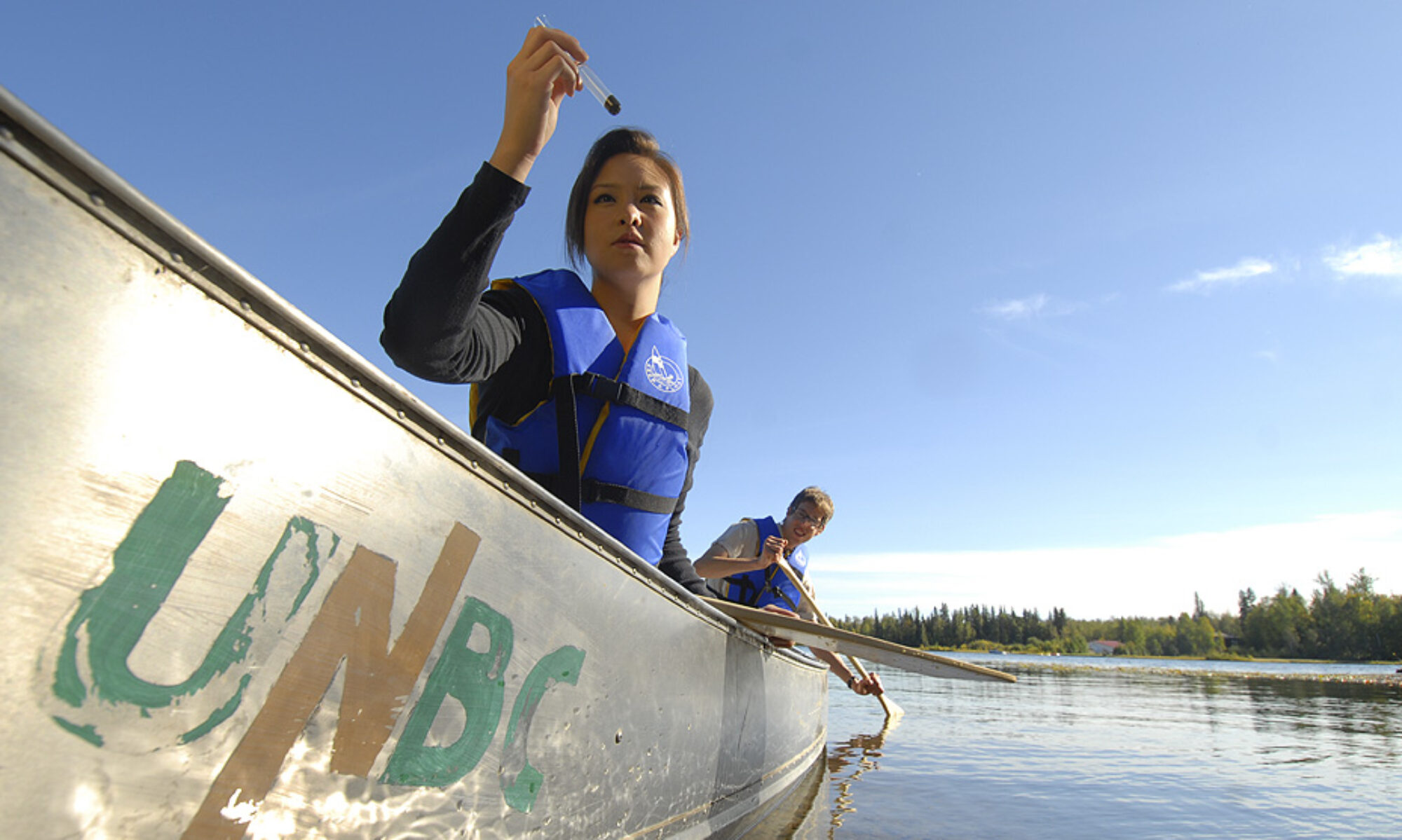A common question I have been asked this year has been, how do I go about talking to faculty about getting involved in research? As an undergraduate student, it can seem unclear where to start when it comes to seeking out research opportunities, and especially unclear when thinking about how to broach the topic with faculty. The classic catch-22 applies. You want research experience, but you do not know how to go about talking to faculty about getting involved in research because you have never been involved in research!
I recently got hired as a part-time research assistant, an opportunity I was made aware of by another professor I had worked with. Upon contacting a different professor to ask if they would be willing to provide a reference for me, they let me know that they would have been glad to have me as part of their research team as well. My head instantly swelled three sizes. While I consider myself fortunate to have gathered the research experiences I have had thus far, the one thing I would give myself credit for is diligently networking with UNBC faculty. Since beginning my studies at UNBC, I have made a concerted effort to get to know not just the instructors in each one of my courses, but virtually any UNBC faculty member who has crossed my path. I have gone to such lengths as inviting myself to department meetings, sending out cold e-mail invites for coffee meet-ups, being overly boisterous in class, and accosting instructors as they are waiting in line at Tim Horton’s. When a faculty member is familiar with you as a person, they are likely to be much more responsive to you inquiring about research opportunities. They may even come straight to you if they have an opportunity to offer! While I wouldn’t necessarily recommend some of the shameless networking strategies that I have employed, here are some simple things you could start doing tomorrow to become a better research network-er.
1. Go to your instructors’ office hours. This is a no-brainer, but something I find most students are reluctant to do. One of the privileges of attending a small university is the potential to spend large amounts of one on one time with your instructors. Without having experienced a larger university, it can be hard to know just how good you have it at UNBC. When I was studying at the University of Alberta, I used to have to wait in line outside instructors’ offices for thirty minutes. Once I got in, they would kick me out after five. For this reason, the only times I would slink up to my instructors offices would be to collect my graded exams. At UNBC, there has never been a time where if I so desired, I was not able to talk to a professor during their office hours. If you are serious about getting to know an instructor, and allowing them to get to know you, there is no reason for you not to be attending their office hours several times each semester.
Won’t they get tired of seeing my face if I go too often?
Well, that depends. The most important thing to be mindful of is that you not treat them like an object, especially given the fact they have set aside this special time of day to put themselves at your mercy. A good way to humanize your office hour interactions with instructors is to genuinely ask them how their day is going before getting to the main business of your visit. As you get to know them a bit better, making a bit of small talk at the beginning of your meetings will start to come more naturally. A personal favourite technique of mine is to comment on one of the books on their shelf. Like, do you actually ever read these? Or are they just here for show? Mind you, I am not endorsing brown-nosery. Any lighthearted conversation you attempt to make in an instructor’s office hours should be genuine. This genuineness will create the impression you see them as a person, and not a walking grade receptacle or fire-breathing dragon.
2. Read work produced by UNBC faculty. Goodness help me if you are not already reading the work of faculty whose research you want to get involved with. Not only will this instill within you a tremendous sense of UNBC pride, it is absolutely necessary preparation should you propose to work with a faculty member, or vice-versa. If you don’t have any particular faculty member you feel you might want to work with, endeavour to reference the work of UNBC faculty in the research assignments you complete as part of your regular coursework. This is a good way of familiarizing yourself with work you might want to get involved with. Your instructors will probably love it, too. In fact, I can tell you that doing exactly this resulted (I believe) in securing the research position I previously mentioned. When writing the cover e-mail to the faculty member in question, I was able to say that I had cited their work multiple times in a paper I had written the previous year. Once again in the interview, I was able to reference aspects of their previous work that I was interested in. Obviously, if you ever secure an interview for a research position, you should learn as much as you possibly can about that faculty member’s research. In my case, I think the interviewer was impressed that I had previously taken a voluntary interest in their research.
3. Don’t burn bridges. Every student could tell you of an instructor that they do not see eye to eye with. If at all possible, it is best to avoid entering into some sort of prolonged dispute with an instructor, even if they are definitely not someone you could see yourself working with in the future. This is especially important at UNBC, where a difficult student’s reputation is that much more likely to spread throughout an entire department. Granted, there are circumstances where discussing the outcome of an assignment or giving some constructive criticism about an instructor’s teaching methods is appropriate and necessary. When these situations arise, here are some best practises you ought to follow. Firstly, do not attempt to resolve the issue solely via e-mail. This will come across as passive-aggressive. The best way to resolve an issue is to talk face-to-face. You can initiate the discussion by e-mail, but if you are not willing to follow that up with an office visit or phone call, the instructor in question will have much less reason to take time to address your comment. The silver lining of such action is that, if it is just a minor quibble, the instructor may even appreciate you all the more for actually coming and talking to them. Secondly, do not blame and complain. Try to think in terms of a mutually beneficial solution or piece of constructive criticism. Consider, how will my bringing up this issue make my instructor’s life, and those of their current and future students, easier in the future? If your instructor was to change they way they handled this assignment or exam, would it result in a better teaching and learning experience for all involved? This advice only applies to matters which you consider to be subjectively academic in nature. Other matters, such as those related to academic misconduct or unprofessional behaviour, are beyond the scope of this article.
4. Pay attention to the news. Pay special attention to the news as it relates to the research interests of those faculty members you hope to work with. This may seem like an odd recommendation at first, but I have never met an instructor who did not appreciate a student who kept up with current events. I have had multiple classes where an instructor designated part of the lecture specifically to discuss the news. In others, there are often times where an instructor will bring up a news item, giddy with excitement, only to be let down by an entire class that has no idea what they are talking about. If you can be the one student who is able to chime in when this occurs, you will carve out a special place in your instructor’s heart and mind. I would argue that paying attention to the news as it relates to the course material is almost as important as completing the assigned readings or problem sets (perhaps more-so in the social sciences and humanities). Staying up to date on the news will also aid you immensely as you try to make small talk in your instructors’ office hours ;). Just trust me on this one.
5. Stay ‘engaged’ in class. I cannot stress this enough! It would be unhelpful of me to recommend that you simply ace a particular instructor’s class at will. That said, there are ways of behaving in class that demonstrate your reliability, enthusiasm, independence, and initiative. What faculty member would not want to work with a student who exemplified these qualities? While you may be hard-pressed to knock off an A+ in a particular course, there are other outputs which you have more control over. The obvious ones are showing up on time, completing the assigned readings and problem sets, and attending office hours. For online learning, staying engaged could mean turning your video on if you are comfortable doing so, muting your mic until you need to speak, and not getting up from your keyboard every ten minutes (I have been guilty of all of these things). These are fairly obvious. Some more nuanced examples include preparing insightful questions to ask on the topic of the day’s lecture; being responsive, but not rude or overbearing, to your classmates’ comments; trying to take a leadership role in group assignments; and completing any optional assigned material. In seminar courses with a participation component, doing these things will probably pay off for your grade as well.
If you can start doing all of this, I guarantee you will have a better shot at getting involved in research at UNBC. Of course, one last thing you could do is get in touch with your friendly neighbourhood research ambassadors. Send us an e-mail at : ‘researchambassadors@unbc.ca’. Tell us a little about yourself and your research interests, and we will do our best to help!

![I don't know what I'm doing [chat] — Penny Arcade](https://unbcra.opened.ca/wp-content/uploads/sites/1223/2020/09/image.jpeg)
